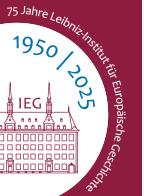LivArch - Documenting Russia’s war against Ukraine: The challenges of living archives for historical knowledge production
Duration: 2024-2027Historians have been debating the paradox of abundance and scarcity of archives and sources since the worldwide popularization of Web 2.0. The ongoing war in Ukraine (2022-) stands out among other disruptive events in the 21st century that comprise such a paradox the most, as one can see by the emergence of new types of community-driven archives, the generation of archival material in real time, and the increased reliance on digital sources due to the inaccessibility of physical archives. Historical research on this war will rely on a multitude of digitally born sources that are being gathered and generated mostly by grassroots activities using social network posts, chats, videos, snapshots by mobile devices, or georeferenced data by satellite. In other words, historians will have to investigate such archives to write the history of this event, as well as to develop methods and theories to approach similar digitally archived events. Additionally, there are sensitive and ethical issues regarding such archives, particularly in the case of archives that document traumatic scenes and possible war crimes, which can be the case of an invaded country in a war. These shifts, however, also confront us with questions of the integrity and sustainability of data documenting the war. All these aspects have not yet been systematically analyzed, and we still lack a sense of how to foster our understanding for the necessary digital advancement of the field of historical research against the backdrop of new forms of archiving, particularly those that developed in the cause of the war. The LivArch project will address such factors impacting the transformation of archival practices and, at the same time, provide an assessment of the current state of the art in emergency digital preservation with a strong focus on learning from the Ukrainian experience and establishing forms of shared authorship between those working scholarly on living and real-time archives as reusers of data, the scholars and activists having created them and the people behind the voices that constitute these archives. Through new formats of transnational collaboration, the project seeks to identify and reflect on ethical challenges, develop new epistemological understanding, and reflect on the impact of this new practice for writing history.
LivArch is a joint project in the "Leibniz Collaborative Excellence" funding programme. The participating institutes alongside the IEG are: Herder Institute for Historical Research on East Central Europe, Luxembourg Centre for Contemporary and Digital History, Roy Rosenzweig Center for History and New Media, Center for Urban History, L'viv, Hochschule Darmstadt - University of Applied Sciences, University of Marburg, Justus Liebig University Giessen.


